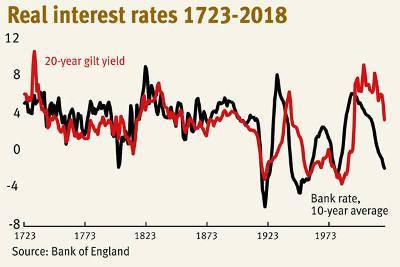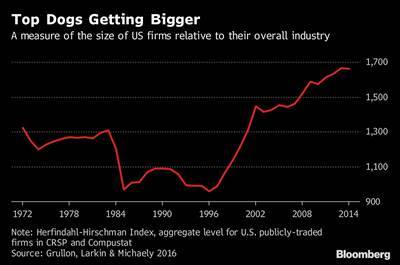Jeremie Averous's Blog, page 28
May 26, 2020
How Being Benevolent Is Not Being Naive
I tend to be rather the benevolent type in business, for example linking often people together without seeking any kind of compensation when I believe this could create value, or providing free advice based on my experience. Recently someone make the reflection that I was being naive. I thus pondered: does being benevolent make me naive in this supposedly shark-infested life?

My conclusion is that no, being benevolent is not being naive, at least up to a certain point. While it is important to protect your core and make sure there is no trespassing of certain limits, I deeply believe that being benevolent is rather positive. Of course this is all based on the consideration that we don’t live in a scarce world but rather in an abundant one. Therefore, creating value for others or supporting them in periods of difficulties is not necessary detrimental to me; and rather creates additional possibilities in the future. They may or not materialize, but at least in the short term I’ll feel good to have supported others.
Of course some limits need to be put there, and there are definitely some people that would be keen to take advantage, but I find that they are relatively easy to identify (not so easy to get rid of sometimes though!).
So, benevolent is definitely not being naive. It is even sometime being courageous; in any case, it is what we should do to create new opportunities for others – and possibly for us in the long term too.

May 23, 2020
How We Seem to Be Getting Collectively Sadder and Angrier
This post has really caught my attention: ‘Pop Songs are Getting Sadder and Angrier‘. It includes some graphs measuring average positiveness and negativeness of songs over time that show that songs get on average slower and gloomier.
 Billie Eilish, revelation of the year with a rather gloomy repertoire
Billie Eilish, revelation of the year with a rather gloomy repertoireAnd it is true that the latest emerging artists seem to have on average a repertoire that is quite more depressed and gloomy than before. It would seem to be a deep trend that would seem to be going on since at least the 1960s.
If we suppose that it is a reflection of our overall societal mood, it’s rather not a good sign on the overall positiveness of our society at least in the western English-speaking world.
What is your feeling about the surrounding negativeness?

May 21, 2020
How Demographics Can Only Explain Part of the Millennials’ Economic Situation
I found this speech by Lord David Willetts ‘Have the Boomers Pinched Their Children’s Futures?‘ quite instructive, although I do not completely concur with the conclusions.

The main message of this speech and the associated book is that due to demographics in developed countries, baby boomers (born between 1945 and 1965) would have developed substantial benefits to the detriment of the younger generations (the millennial). While it is quite obvious that the economic situation of the younger generations is not quite as good as young people some decades ago, I believe there is a mixture in the analysis between a general trend of economics and inequality increase, and a demographic effect. Everything can’t just be put on the demographics.
I still believe that the dominating economic effect today is globalization and digitization, making it harder for people with low qualifications to get adequate compensation and putting a premium to those that are globally competitive.
Still the weight of the retirees of the baby boom in western countries will be an issue to deal with, albeit a relatively temporary one. And yes, younger generations will possibly have a less easy time in retirement and there will need to be put some limits on economic transfer towards retirees. But that may not be the biggest driver of today’s economical transformation.

May 19, 2020
How Having the Right Type of Competition is Great
I like Simon Sinek’s argument ‘How having the right kind of rival can help you thrive in a changing world‘.

“By identifying a Worthy Rival and looking at their strengths and abilities, we can keep improving and innovating“.
According to Simon Sinek, to really understand this we also need to understand we live in an infinite game and not just in a finite game. In a finite game, competition for limited resources means the loser gets less. In an infinite game, there can be mutual benefits based on an expanding playground, with everyone winning.
Having a worthy rival is essential for improvement and progress. If that happens in a fair and almost cooperative manner it is the recipe for great mutual success. However I observe that too many people and corporations still view the world as finite and competition as a war where competitors should get destroyed.
I am myself trying often to get into a positive relationship with competitors, but I must admit that I’ve been often told that it was too naive.
Well I’ll continue until I find a worthy rival with an open infinite mindset which will help me – and me help him – get to greater heights.

May 16, 2020
How Low Interest Rates is Not a New Situation and May be the Future too
As you may have noticed I love to put things in historical perspective. This excellent Daily Reckoning post ‘5,000 Years of Interest Rates‘ just shows how the current situation is not new. It even quotes statements from the late 19th century that expressed despair at the low real interest rates of the time.

There is even more: it would appear that the historical trend would be towards lower real interest rates: “Despite temporary stabilizations such as the period between 1550–1640, 1820–1850 or in fact 1950–1980 — global real rates have shown a persistent downward trend over the past five centuries… This downward trend has persisted throughout the historical gold, silver, mixed bullion and fiat monetary regimes… and long preceded the emergence of modern central banks.”
There is a view thus that interest rates should continue to fall down unless another period of exceptional economic expansion kicks-in again (which could be still be possible with the reach of the Collaborative Age).
Historical perspectives are always inspiring. Of course the future is never quite the extrapolation of the past, but one can only observe this ongoing trend towards lower interest rates, that may also be the consequence of more available capital globally.

May 14, 2020
Why We Need to Work on Unfashionable Problems
I am getting fed up by the hype around fashionable ‘Artificial Intelligence’. Everything should be Artificially Intelligent nowadays (ref my previous post ‘How Automation Should Not Be Marketed as Intelligent‘). Thus I very much like this post of Paul Graham on ‘Fashionable Problems‘. His point is that too many people work on the latest fashionable technology or problem, and too little on other important aspects.

“Even though lots of people have worked hard in the field, only a small fraction of the space of possibilities has been explored, because they’ve all worked on similar things. Even the smartest, most imaginative people are surprisingly conservative when deciding what to work on. People who would never dream of being fashionable in any other way get sucked into working on fashionable problems.”
On this other hand this consideration also shows that there are great opportunities in working on other things than the latest fashion (although of course it may be much more difficult to get funded). And this is what I like to consider: non-conventional people that follow their interest irrespective of the latest fashion. Paul Graham reminds us actually that “The best protection against getting drawn into working on the same things as everyone else may be to genuinely love what you’re doing. Then you’ll continue to work on it even if you make the same mistake as other people and think that it’s too marginal to matter.”
Thus, do not worry too much about the latest fashion on tech. There are so many other areas where progress would be profitable for humankind. Don’t let yourself be deterred. Find what you’re passionate about and go for it!

May 12, 2020
How Automation Should Not Be Marketed as Intelligent
There is a lot being written these days about putting some limits to the hype of ‘Artificial Intelligence’. In this interesting post on Forbes ‘Automation Is Not Intelligence‘, the point is made that while calling stuff ‘AI-enabled’ is trendy, it does nothing to create more intelligence!

In particular, the article makes the point that automation is not intelligence. Increased automation fosters productivity, but it is only to make repeatable dumb tasks quicker and more efficiently. However there seem to be a trend to mix both aspects in current marketing.
“Vendors that push automation solutions as intelligent are potentially hurting the industry. If customers are lead to believe that various automation solutions are what they can expect out of AI systems and humans are required to add intelligent components on their own to call their systems intelligent, then the industry is heading for a rapid correction.”
The issue is of course that there is excessive hype around everything artificially intelligent (supposedly). “While there is a lot of great, new innovation that’s pushing the industry forward towards more intelligent systems capable of many of the challenging areas that have previously not been able to be solved due to extreme complexity or the need for human labor, there are just as many companies who are using the term AI as more of a marketing ploy or a way to raise money.”
There will be a correction in the industry when people realize what are really the limits of ‘Artificial Intelligence’ technology (read this other interesting post ‘It’s not Artificial Intelligence, it’s a new level of automation‘). Let’s not call everything intelligent, for the moment not a lot is really except humans.

May 9, 2020
How Our Phones Are Listening to Everything
Following up on our previous post ‘How We Get Tracked by Our Phones and by People We Don’t Imagine‘, it’s even worse: our phones are constantly listening too! This USA Today column ‘You’re not paranoid: Your phone really is listening in‘ covers some interesting details.

It appears there is a strong suspicion that new marketing approaches is to serve adds based on some key words that are listened by the phone.
“In mid-2018, a reporter for Vice experimented to see just how closely smartphones listen to our conversations. To test his phone, the journalist spoke preselected phrases twice a day for five days in a row. Meanwhile, he monitored his Facebook feed to see if any changes occurred. Sure enough, the changes seemed to arrive overnight.”
Of course there is some convenience in being able to instruct your phone or device by voice (although I still find it odd and prefer to type), but it obviously comes with some drawbacks.
So if you want to have a really important discrete conversation, have your phone somewhere else. Even when it’s off, someone may still listen to you!

May 7, 2020
How We Get Tracked by Our Phones and by People We Don’t Imagine
We get permanently tracked by our phones… and they don’t even try to hide it! Like me you probably receive on a regular basis a Google Maps recap of the previous month. At the start I found those emails quite creepy, now I guess I got used to them.
 My location data for January 2020
My location data for January 2020Nevertheless this excellent New York Time visualization ‘ONE NATION, TRACKED: an investigation into the smartphone tracking industry‘ shows the extend it takes when applied to the entire population.
The most interesting part is that although the dataset of the location of 12 million phones provided for research is supposed to be anonymous, it proves quite easy to associate a phone with an individual based on his location pattern. Actually it is not quite possible to anonymise a data set of locations.
And the scariest bit – the data did not originate from a phone network provider or a GAFA. It “originated from a location data company, one of dozens quietly collecting precise movements using software slipped onto mobile phone apps. You’ve probably never heard of most of the companies — and yet to anyone who has access to this data, your life is an open book.“
I encourage you to read and watch the infographics of this paper to really understand what we have all accepted to get into. It would be quite easy for non scrupulous users of the database – or some surveillance state – to know exactly what we are up to.

May 5, 2020
How Superstar Firms Are the Result of the Collaborative Age
In this interesting post ‘Superstar firms and market concentration‘ the economist Tyler Cowen quotes a paper that rebuts the notion that market concentration is rising because of inadequate antitrust concentration. The thesis is that super companies arise because of the collaborative age: global market availability, communication capabilities.

“If globalization or technological changes push sales towards the most productive firms in each industry, product market concentration will rise as industries become increasingly dominated by superstar firms, which have high markups and a low labor share of value-added.”
The authors then make a number of predictions including that the pattern should be visible internationally, and that superstar concentrated firms will be where productivity increases most.
Still, the Fourth Revolution has created a concentration that needs to be regulated somehow. But we may underestimate the value of the possible scaling effect brought by modern communication capabilities.




